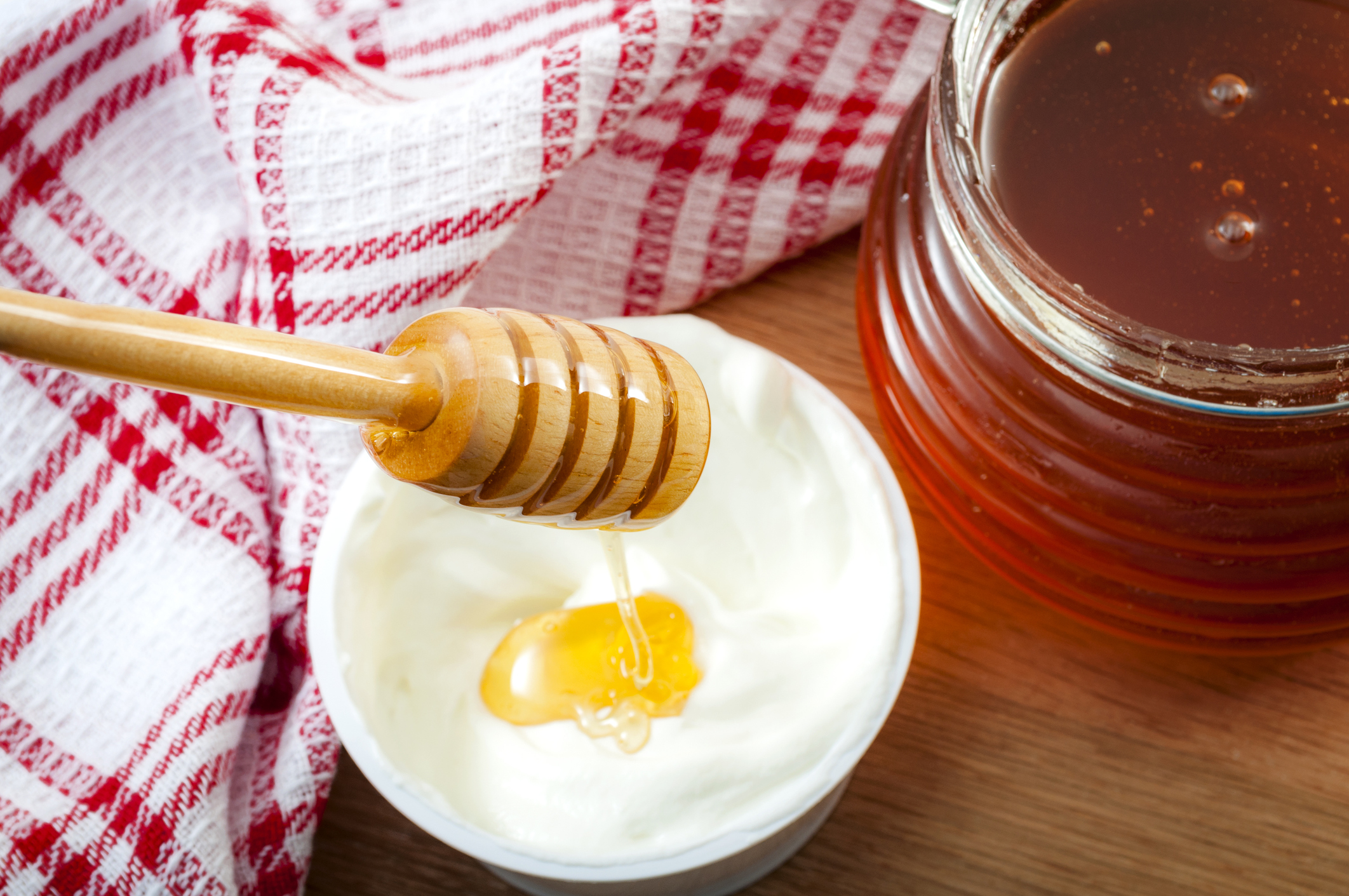Get Easy Health Digest™ in your inbox and don’t miss a thing when you subscribe today. Plus, get the free bonus report, Mother Nature’s Tips, Tricks and Remedies for Cholesterol, Blood Pressure & Blood Sugar as my way of saying welcome to the community!
The sweet truth about yogurt, honey and your gut

I love having yogurt mixed with honey, whether for breakfast or as a sweet treat. I know each component is healthy, so I don’t feel like I’m cheating when I eat it.
Yogurt is packed with probiotics such as Bifidobacterium animalis that help keep the gut in tiptop shape. And when the gut is healthy, your digestion, mood and cognition are supported — and you can worry less about risks for obesity, diabetes and colon cancer.
As for honey, it also has been found to support a healthy gut, a healthy mouth, cut down on strep and bladder infections, upper respiratory infections and coughs as well as relieve seasonal allergies.
But there is one thing I worry about when I have this snack. I’ve heard that adding sweeteners like sugar to yogurt can disrupt yogurt’s probiotics. Is the same true of honey?
A perfect pair for your gut
Researchers at the University of Illinois Urbana-Champaign wanted to explore the impact of the yogurt-honey combination on the gastrointestinal microbiome. They were particularly interested in whether honey could help probiotic bacteria survive the onslaught of digestive enzymes in the gut.
To do so, they conducted two separate studies. In the first, they did laboratory tests of four different kinds of honey to see whether they had any effect on the viability of B. animalis in yogurt as it went through the digestive process. The types of honey were alfalfa, buckwheat, clover and orange blossom. The yogurt and honey were put in solutions that mimicked the composition of saliva, stomach acid, intestinal bile and enzymes.
When mixed with saliva and stomach fluids, there were no differences in B. animalis survival between any of the honey types and control samples of yogurt mixed with sugar or water. But in the intestinal phase of digestion, yogurt with honey — particularly the clover variety — helped support probiotic survival.
The second study was a clinical trial involving 66 healthy adults who were asked to consume two different items for two weeks each: yogurt with clover honey and pasteurized, heat-treated yogurt. In addition to stool samples and information about their bowel movements, the participants filled out questionnaires and performed tasks evaluating their mood, cognition and overall well-being.
“Our findings showed that pairing honey with yogurt supported the survival of the yogurt’s probiotic bacteria in the gut, so the lab study results did translate to real-world application in humans,” says study co-author Hannah Holscher, a professor at Illinois.
The researchers did note there were no changes in intestinal transit time, frequency of bowel movements, mood or cognition. However, Holscher says this likely is because the participants were already healthy and had regular bowel movements.
The researchers also conducted a smaller follow-up study with 36 participants who consumed a third item: yogurt with sugar. Once again, yogurt with honey proved to preserve the most probiotics, but there were no effects on health measures.
Good in moderation
Judging from the results of these studies, it looks like mixing yogurt with honey is a great way to preserve as many of the probiotics in the yogurt as possible.
In addition, Holscher suggests incorporating fiber-rich toppings such as berries and seeds or nuts to give your yogurt an extra boost of gut-protecting power.
One tablespoon of honey in a serving of yogurt seemed to be the magic number in the study. One thing to remember, however: as healthy as honey can be, it is still an added sweetener and a source of extra calories.
Holscher recommends keeping a close eye on the amount of sugar in your diet to maintain a healthy body weight “But adding a little bit of honey to unsweetened yogurt is a nice culinary pairing to incorporate into your menu rotation,” she says.
One final tip: Though it’s hard to separate myth from fact on this, many honey experts suggest using a wooden spoon instead of a metal one to dip out your honey. Some metals interact with acids in honey and that may kill enzymes that are part of honey’s health benefits.
Editor’s note: Are you feeling unusually tired? You may think this is normal aging, but the problem could be your master hormone. When it’s not working, your risk of age-related diseases skyrockets. To reset what many call “the trigger for all disease” and live better, longer, click here to discover The Insulin Factor: How to Repair Your Body’s Master Controller and Conquer Chronic Disease!
Sources:
Honey added to yogurt supports probiotic cultures for digestive health — EurekAlert!
Honey Varietals Differentially Impact Bifidobacterium animalis ssp. lactis Survivability in Yogurt through Simulated In Vitro Digestion — The Journal of Nutrition
Honey Added to Yogurt with Bifidobacterium animalis subsp. lactis DN-173 010/CNCM I-2494 Supports Probiotic Enrichment but Does Not Reduce Intestinal Transit Time in Healthy Adults: A Randomized, Controlled, Crossover Trial — The Journal of Nutrition
10 Foods with More Calcium than a Glass of Milk — EatingWell
Why Does Yogurt Contain Sugar? — The Candida Diet
Metal vs. Wooden Honey Spoons — Vickiesbees.com














